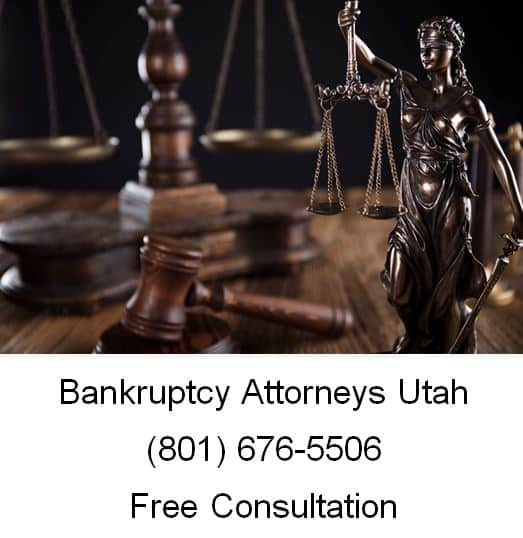
When a customer doesn’t pay his or her bill, business owners have a tough choice to make. In some cases, collecting debts can take a long time and cost more money than it’s worth. If a customer goes into bankruptcy, many businesses will just give up the claim altogether, but it’s worth spending time to figure out whether pursuing customer debts into bankruptcy is worth it. If you’re not sure how to move forward, then you should speak with a Bankruptcy Lawyer in Salt Lake City Utah for sure.
A significant amount of money is lost simply because businesses believe that collecting debts from customers in bankruptcy will take too much of their resources. Sometimes, it’s not worth the time and expense involved, but it’s not nearly as difficult as many businesses think. Weigh the pros and cons of pursuing the debt and consider the steps below to see whether collecting debts from bankrupt customers is worth your while.
Collecting Debts from Customers in Bankruptcy
All bankruptcies play out differently, but the steps a business needs to take to collect a debt from a bankrupt customer are to first stop collection and comply with bankruptcy order: it’s very likely that the bankruptcy court issued an automatic stay, ceasing any and all debt collection while the matter is being reviewed in the bankruptcy court. Record the account as bankrupt and make sure that any collection agency you may be using complies with the court’s order and stops making collection demands.
Read the bankruptcy papers. If you don’t understand them, call a lawyer who does. the debtor filed paperwork with the bankruptcy court to enter the court’s protection, and that paperwork will list which property of the debtors is part of the bankruptcy and which items the debtor believes are protected from bankruptcy. The paperwork will also give a list of creditors and their status as secured (with collateral) or unsecured. Knowing these two things – the property available and a list of creditors – you can make a realistic evaluation of your likelihood of success. Don’t give the list of creditors as much weight as you might be tempted to because many creditors fail to follow through the entire bankruptcy process and leave more property available than you might think.
Don’t meet with the debtor without your lawyer being with you or you could be in big trouble. Creditors are given a chance to meet with the debtor for a public examination during a 341 hearing, this is usually the only opportunity to question the debtor about your claim and any property relevant to satisfying your claim. Surprisingly few creditors show up to their meeting, so this isn’t as time consuming as you might expect.
If there will be proceeds from the bankruptcy estate, you should file a proof of claim. You want to make sure you do this right, so if you’re not sure, contact Ascent Law for more information. if you’ve decided that you have a reasonable chance of success in recovering on the debt, then file a proof of claim. This document states your desire to be a part of the bankruptcy proceedings, and attaches any documentation that proves the validity of your claim against the debtor, such as contracts, records and communications. The proof of claim is a relatively short document, usually only one page in length. The debtor may object to your claim; if that happens, you will need to attend a court hearing. If you fail to file a proof of claim, then you will likely lose your right to be a part of the bankruptcy proceedings and forfeit your right to be paid from the proceeds of the bankruptcy.
Sometimes you should attend the debtor’s bankruptcy hearing and sometimes it’s a waste of time. This step depends on which form of bankruptcy the debtor has filed under. If the debtor filed for Chapter 11, you may be asked to propose a reorganization and repayment plan for the debt. If the court has numerous plans proposed to it, you will be allowed to vote by mail on which plan gets adopted. If the debtor filed for Chapter 13, then the issue will likely go straight to a hearing, where the court will decide to approve, reject or modify the debtor’s proposed repayment plan. At this hearing, you will have the right to object to the debtor’s plan.
Wait. Once you’ve attended the court hearing, you should be on record with the court and in line to recover on the debt. The bankruptcy will be administered by a trustee who will either oversee the repayment plan (Chapter 11 and 13) or oversee the distribution of assets after a bankruptcy sale like in a Chapter 7 Bankruptcy.
Follow up with your bankruptcy business lawyer to make sure everything is on track. Follow up any questions you have with the trustee, don’t contact or harass the debtor. Doing so may forfeit your claim for payment under the bankruptcy. By actively participating in the bankruptcy and staying involved, you can greatly increase your chance of recovering the debt owed.
Be prepared to wait several months while the bankruptcy unfolds. If you become aware during the bankruptcy that the debtor may have gained additional funds through inheritance, wining a lawsuit, getting a pay raise, etc., then contact the trustee immediately.
Bankruptcy Lawyer Free Consultation
If you have a bankruptcy question, or need legal help with a bankruptcy case, call Ascent Law now at (801) 676-5506 for your free consultation. We want to help you.
8833 S. Redwood Road, Suite C
West Jordan, Utah
84088 United States
Telephone: (801) 676-5506

